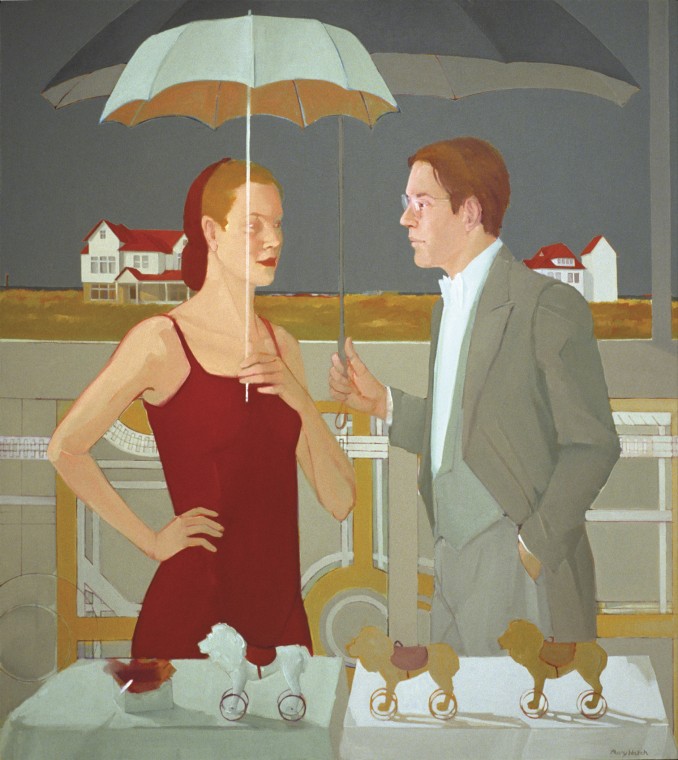
Markmandsgade 21, Kobenhavn S
—after Rumi
In this house of— and—
we ran from a home we never really made.
No cotton. No basket of bread. The candles were almost—
necessary to the arrangement.
Light lengthened water, canals brimmed candy-colored houses
older still than the city where we met.
Days of endless day— something never said stretched across the
continent across banksides across tongues. Do not look for your words
here. Still it was— roast chicken or kale and— copper and
gold-plated spires and sea, a shared plate, a covered market.
And when we lost the light— days of endless night— searching
for the moon that could not be seen. The eye and the lamp
are different lights but you— said union. A raging river running
toward the sea, all drops go to the ocean.
And while we spent so much time seeking shore and sand,
unmoved by colder, deeper ports, the Northern seas— secrets
like pomegranate seeds— Every story forming itself—
the terrible collection, a tavern blood sacrifice—
And when you said now the words are over— packed into three bags—
And when you looked back— turned to the January light—
dissolving into winter wind :
a bitter pillar of salt.
_______________
Jennifer Reimer
Review by Ralph Earle
In “Markmandsgade 21, Kobenhavn S,” Jennifer Reimer pays homage to the thirteenth-century mystical poet Rumi, with a pastiche of thoughts and images that circle around the truth of a dissolving love relationship.
With its opening line, “In this house of—and—,” the poem establishes an expectation of hesitation. Even though the narrator may fully understand the interrupted thought, she may be unwilling to utter it. The house, doubtlessly the one referred to in the title, is a container for a love relationship that blossomed and failed; it may be too painful to say what the house was “of.”
The narrative arc of the poem stretches from the endless days of Scandinavian summer to the winter, “when we lost the light.” The images that bring this love to life are striking and vivid, more so because of the typographical and conceptual lacunae that stitch them together:
. . . Still it was— roast chicken or kale and— copper and
gold-plated spires and sea, a shared plate, a covered market.
Italics threaded through the main narrative introduce a second voice, perhaps Rumi or perhaps the narrator’s lover. These interjections are similar in quality to the vast ocean of Rumi’s poetry, but darker: “we ran from a home we never really made” or “A raging river running toward the sea.” They touch on some of Rumi’s themes: the limitations of words, the light in which we can view experience, the river’s longing for union.
The final italic phrase, “now the words are over,” speaks for both Rumi and the contemporary lovers: Rumi’s words are over because spiritual union is beyond words. The lovers’ words are over because their union has failed. There is a tension between Rumi’s lofty metaphorical view of love and the earthly heartbreak his inspiring words can’t gloss over. It’s ironic to think of Rumi’s own unbearable grief at the disappearance of his beloved teacher Shams. Grief over worldly love can open the doorway to great poetic and spiritual expression, but here the conclusions seem more nuanced and ambiguous.
The poem closes with a reference to Lot’s escape from the destruction of Sodom and Gomorrah, the sort of scriptural tale that Rumi himself is fond of relating. The husband escapes, while his wife’s backward glance of compassion or sentimentality turns her into “a bitter pillar of salt,” bringing to mind tears, the ocean, and an eventual melting away. Still, a pill can be healing medicine, however bitter.
